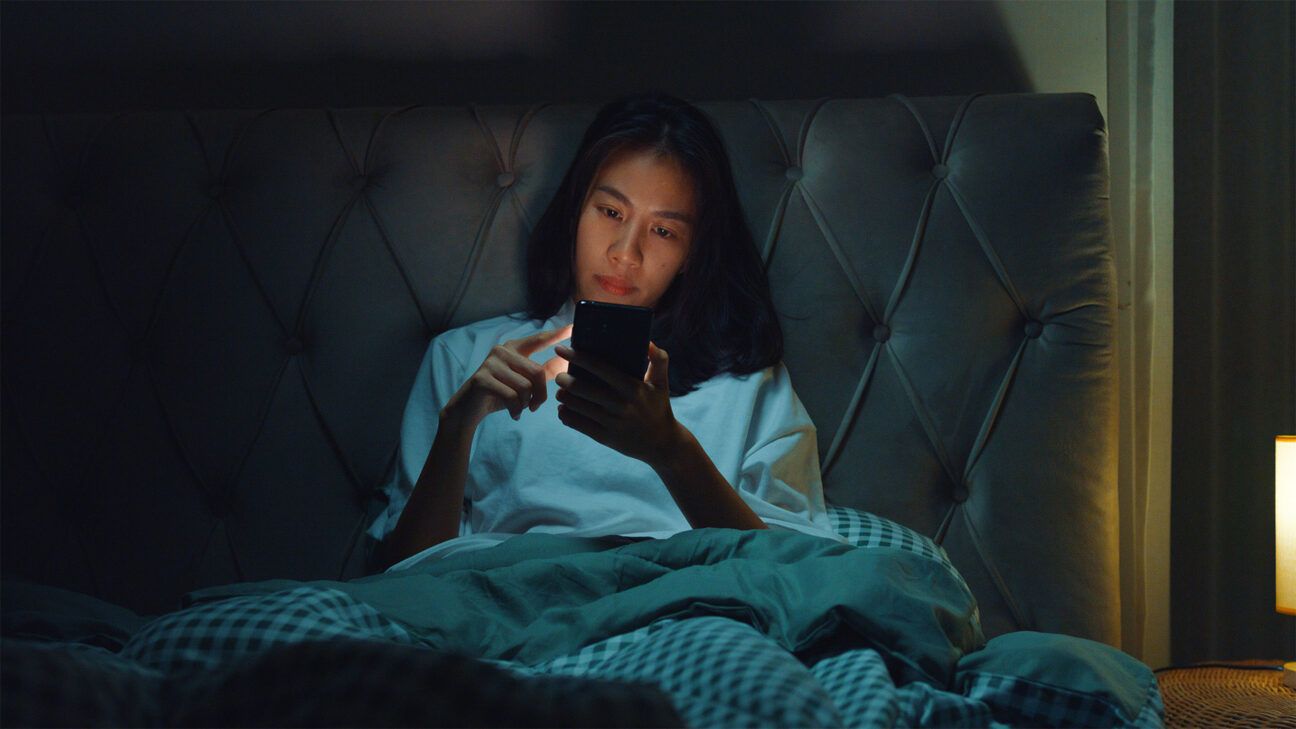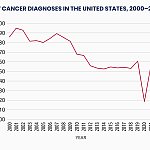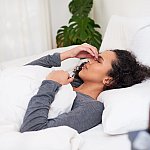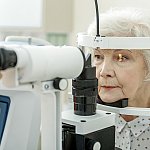
Many people simply do not get enough sleep, despite the known health benefits of quality shuteye.
According to the Casper-Gallup State of Sleep in America report, about 84 million American adults, or 33%, describe the quality of their sleep as “fair” or “poor.” For young adults, that percentage rises to 38%.
In addition, just 35% of United States residents were likely to get the recommended eight hours of sleep daily.
While multiple factors affect sleep quality and duration, a new Norwegian study finds that spending time on your mobile phone at bedtime can result in poorer-quality sleep and insufficient sleep.
The findings show that each one-hour increase in screen use raised insomnia risk by 59% and shortened sleep duration by 24 minutes.
The study included 45,202 young adults ages 18 to 28, and investigated different types of screen activity and their effect on sleep. The full results were published March 31 in Frontiers in Psychiatry.
“While previous research has often suggested that social media use is particularly disruptive to sleep, our findings challenge this notion,” senior author Børg Sivertsen, PhD, senior researcher at the Norwegian Institute of Public Health, told Healthline.
The study tracked activities such as social media use, watching TV and movies, gaming, listening to music or podcasts, and reading. Sivertsen said follow-up research will include using a phone for work-related matters before bed.
There is
Blue-wavelength light is beneficial during the daytime, increasing attentiveness, improving mood, and shortening reaction times.
However, not all research supports concerns regarding blue light and sleep.
A recent
Leah Kaylor, PhD, MSCP, a clinical psychologist and author of a forthcoming book on sleep, remained concerned about blue light. However, she explained why bright light, in general, is likely a problem for sound sleep. Dr. Kaylor wasn’t involved in the study.
“We still have the same neural circuitry as our caveman ancestors whose lives and activities were ruled by the sun,” Kaylor told Healthline. “Since we still have the same circuitry, we can easily confuse the brain by being in the presence of light close to bedtime.”
Yet not everyone reacts to bright light in the same way.
“I think it is important to acknowledge that we inter-individually differ considerably in how light is able to suppress melatonin — about 50-fold,” Jonathan Cedernaes, PhD, a sleep expert at Uppsala Universitet, Sweden, told Healthline. Cedernaes wasn’t involved in the study.
Sufficient sleep is a vital component of good health. Not getting enough sleep has negative ramifications for most major systems within the human body, including the:
Insufficient rest over time is a
Referring to his study, Sivertsen said, “Interestingly, students who exclusively used social media had the lowest rates of insomnia and the longest sleep duration compared to those who engaged in other screen activities or a mix of activities.”
His study hypothesizes social media participation may actually have less of an effect than other activities since the socialization it supports may be protective of sleep.
However, a 2019 study found that screen use of any kind appears to cause sleep problems for adolescents and younger children. This could include social media, watching television or movies, gaming, or e-reading.
“Adolescents tend to be more socially and emotionally reactive, making social interactions more stimulating and harder to disengage from before sleep,” Sivertsen speculated. “[They] often have a delayed sleep phase, meaning late-night social screen use could further shift their sleep schedule.”
Additionally, Cedernaes cited a
For college-age young adults, the social media pull remains strong: One survey found that 93% of Gen Z respondents reported staying up past their bedtime to partake in social media.
Kaylor expressed surprise at the Norwegian study’s conclusion regarding social media activities and concern that gaming was not tracked more closely, as she noted that it has been linked to greater sleep disruption elsewhere.
“Overall,” Kaylor said, “I find the results interesting but not strong, and more research needs to be done to truly support the claim that social media use in bed before sleep is protective. That claim is quite a stretch.”
Cedernaes suggested that unpacking the influence of social media on sleep issues is a difficult endeavor, with many possible confounding factors to be considered.
These include a person’s relationship with social media. For instance, do they find it relaxing or stress-inducing? Are they turning to their phones due to existing sleep problems? Does their screen use come at the end of stressful days?
To help ensure a good night’s sleep:
As experts continue to clarify the relationship between mobile device use and healthy sleep, practicing good sleep hygiene makes good sense.





